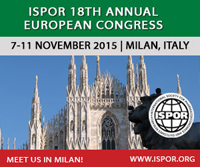Palivizumab nella profilassi del virus respiratorio sinciziale: analisi di impatto sul budget del SSN italiano
DOI:
https://doi.org/10.7175/fe.v12i3S.985Keywords:
Budget impact, Palivizumab, RSVAbstract
Palivizumab is a monoclonal antibody to RSV that has been shown to significantly reduce the frequency of hospitalisations for RSV infection, in at-risk populations. However, payers are concerned about the budgetary impact of adopting palivizumab. A budget impact model was developed to estimate the financial impact of palivizumab for the prevention of severe RSV infection in at-risk populations in the Netherlands. These analyses were adapted to Italy, after a brief review of the literature on the health care system and epidemiology of RSV infection in our country. The report below outlines the methodology and analysis of the costs associated with palivizumab prophylaxis of premature infants of 33 to 35 weeks gestational age which are the at-risk subgroup eligible for prophylaxis according to Italian guidelines.Downloads
Published
2011-07-15
How to Cite
Roggeri, D. (2011). Palivizumab nella profilassi del virus respiratorio sinciziale: analisi di impatto sul budget del SSN italiano. Farmeconomia. Health Economics and Therapeutic Pathways, 12(3S), 17–23. https://doi.org/10.7175/fe.v12i3S.985
Issue
Section
Supplement
License
Authors who publish with this journal agree to the following terms:
- Authors retain copyright and grant the journal right of first publication with the work simultaneously licensed under a Creative Commons Attribution-NonCommercial 4.0 License that allows others to share the work with an acknowledgement of the work's authorship and initial publication in this journal.
- Authors are able to enter into separate, additional contractual arrangements for the non-exclusive distribution of the journal's published version of the work (e.g., post it to an institutional repository or publish it in a book), with an acknowledgement of its initial publication in this journal. The Publication Agreement can be downloaded here, and should be signed by the Authors and sent to the Publisher when the article has been accepted for publication in this journal.
- Authors are permitted and encouraged to post their work online (e.g., in institutional repositories or on their website) prior to and during the submission process, as it can lead to productive exchanges, as well as earlier and greater citation of published work (see The Effect of Open Access).
- Authors are permitted to post their work online after publication (the article must link to publisher version, in html format)






